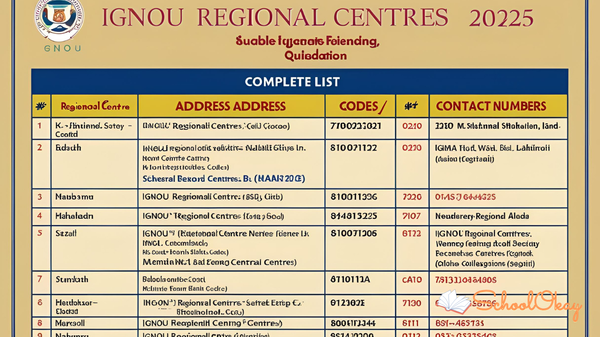A Tour Of The Best Books On Indian History
This article books that covers the history of India from the Indus Valley to the Mughal Empire and its complicated past. medieval history as

India has a long history that has been weaved into an exquisite tapestry over the course of many centuries, from the Indus Valley Civilization in the past to the Mughal Empire and from India's war for freedom to the present. India went through various stages before arriving at its current point in time. In this article, let's discuss India's history through a tour of the best books on Indian History.
India has a complicated past, and the best way to learn more about it is to read the best novels about its struggles, victories, and tales. We have included some of the top books that will provide you with a thorough understanding of the country's history in this post.
"India: A History" by John Keay

This landmark work provides a thorough and fascinating examination of Indian history from antiquity to the present. The book covers a wide range of subjects, such as the history and culture of various civilizations.
The book is broken up into numerous sections that represent various eras in Indian history. This enables readers to travel across many time periods and see how the Indian subcontinent and civilization have evolved.
Insights on the impact of British colonialism and governance are provided in this book regarding India's political, economic, and social landscape.
The book encourages readers to learn more about the fascinating history of India while also imparting knowledge. The work of John Keay demonstrates his commitment to understanding the complexity of Indian civilization and presenting it in a cogent and engrossing way.
A History of Ancient and Early Medieval India by Upinder Singh

This is a thorough and academic examination of India's history from the Stone Age until roughly 1200 CE. The book, which was published in 2008, fills in a significant portion of the Indian historical era, which was regarded as the origin of India's rich cultural diversity.
The writing of Upinder Singh is interesting and approachable. As a result, the work is appropriate for both academic readers and those who are generally interested in reading historical fiction. The book is frequently cited as a great resource for students studying Indian history, but historians will also find its depth of research and thorough coverage helpful.
An essential addition to Indian history is made by the book. It reflects historical events and people's ways of life. The relationships between Indians and other religions are also highlighted.
The book provides readers with a clearer understanding of the complexity and influences that have moulded the subcontinent's unique civilization and culture by shedding light on significant periods in India's history.
Jawaharlal Nehru's "The Discovery of India"

The first prime minister of India, Jawaharlal Nehru, produced a tremendous effort with this book. While Nehru was detained by the British colonial authorities in 1946, it was published. The book explores India's past historically, but it also closely represents India's political, philosophical, and cultural development.
Even the title of the book illustrates Nehru's ambition to explore Indian history from his own viewpoint. Nehru had a significant role in both India's war for independence and its subsequent emergence as a young sovereign state. Nehru considered India's history to be a crucial tool for comprehending India's identity and position in the world.
In addition to using an academic method to write this book, Nehru also contributed his own insights and experiences. The book reflects Jawaharlal Nehru's future outlook in addition to being a history of India. This book is a must-have for everyone interested in learning more about India's history, culture, and challenging road to freedom.
Ramachandra Guha's "India After Gandhi: The History of the World's Largest Democracy"

A major study by historian Ramachandra Guha was published in 2007. It includes a thorough history of India from the time of its independence in 1947 to the present. It raises new questions about the difficulties and achievements that have influenced the country's development as a democratic republic.
The history of India's people, events, and policies have all been thoroughly examined in the book. Guha clarifies the importance of leaders like Indira Gandhi, Rajiv Gandhi, and Jawaharlal Nehru, as well as the influence of movements like the Green Revolution on India's development.
Students, academics, and general readers who are interested in learning more about modern Indian history and the complexities of its democratic experiment are advised to read the book. The book aids readers in understanding the dynamics and complexity of the greatest democracy in the world as well as its continual pursuit of growth and improvement.
"The Great Partition: The Making of India and Pakistan" By Yasmin Khan

The book explores the intricate and painful process of India's split in 1947 in a captivating and well-researched manner. The causes that caused the split, the political choices that shaped it, and the disastrous human effects that followed are all explained in the book.
The Great Partition is treated academically and sympathetically by the author. The author uses a wide variety of information from oral histories, personal testimonials, and archival data to build a multi-dimensional narrative that portrays the magnitude of the partition's impact on the people of India and Pakistan.
The book offers a compelling examination of a pivotal period in South Asian history. It serves as evidence of the significance of recalling and taking responsibility for the upsetting consequences of the past.
William Dalrymple's "Nine Lives: In Search of the Sacred in Modern India"

This is a moving examination of religion, culture, and the human experience in modern India. This book is a riveting read thanks to William Dalrymple's outstanding talents, great narrative, and profound sensitivity. You must choose this book if you want a deeper grasp of the complex interactions between spirituality, culture, and modernity in the context of India.
The book offers insights into more general cultural, social, and political challenges in India, in addition to focusing on its subject's spiritual journey. The author examines caste, creed, gender, economic inequality, and the difficulties of upholding tradition in a society that is changing quickly through the eyes of these individuals.
Due in large part to the author's close relationships with each of the book's nine subjects, which allowed him to gain a thorough insight into their lives and capture the subtleties of their religious traditions, the book is fascinating, captivating, and thought-provoking.
By Dominique Lapierre and Larry Collins, "Freedom at Midnight"

This compelling story describes the fight for India's independence and the roles that important individuals like Mahatma Gandhi, Jawaharlal Nehru, and others played in it.
The significance of India's freedom from British dominion is made clear by the book's title. The book emphasises the 15 August 1947 "midnight hour," when India was finally freed from tyrannical British control.
This book's narrative style is interesting and approachable, making it suitable for a variety of readers, including history buffs who want to learn more about India's path to independence.
The book has received high praise for its in-depth analysis and engaging storytelling. Several reviewers have voiced concerns concerning historical accuracy and possible biases.
The book also allows us to consider the struggles, victories, and enduring contributions of those who fought for India's independence.
Amartya Sen's The Argumentative Indian

The Argumentative Indian, a book by Nobel laureate and well-known author Amartya Sen, provokes thought. It offers a selection of essays that examine India's illustrious intellectual and cultural traditions.
The book is structured into four pieces, and each portion takes a modern perspective to look at various facets of Indian history, philosophy, and culture.
Sen has also written about a variety of subjects, including democracy, secularism, economic development, identity, and social justice.
For a deeper understanding, it is advised to approach this book with a critical mentality and look into a variety of sources. The book emphasises the importance of open speech and reasoned argument as crucial tools for overcoming the difficulties presented by a complex and diverse society.
The Last Mughal: The Fall of Dynasty Delhi, 1857 by William Dalrymple

William Dalrymple, a prominent British historian, wrote a compelling historical account that is used in The Last Mughal. The Indian Rebellion of 1857, often known as the Sepoy Mutiny or the First War of Independence, and its impact on the Mughal Empire are thoroughly explored in the book.
The book covers the cultural and social setting of Delhi in the 19th century in addition to exploring the political and military aspects. The author offers insights into the lives and aspirations of many cultures, including Indians and British people who were involved in the fight.
Readers are thrust into the centre of the events the author depicts. All thanks to the author's superb writing technique and evocation, he powerfully described the tragedy of the conflict, giving light to the chaos that resulted and the significant effects it had on the city and its people.
The book has received high praise for its research and storytelling, but it has also had some detractors. Regarding the role of religion, several organizations have questioned the interpretation and elements of narratives, friction between communities in the revolt, and others.
The Wonder That Was India by A.L. Basham

The book's author is British historian, Sanskrit expert, and Indologist Arthur Llewellyn Basham. The book examines India's intellectual, social, and cultural history with a focus on its accomplishments in disciplines like philosophy, science, art, and government.
The book's thorough examination and treatment of all facets of Indian society and culture is one of its main advantages. The author explores a variety of subjects that are studied in India, including literature, architecture, mathematics, religion, the political system, and medicine.
The book's title itself expresses the author's appreciation for India's historical figures and its distinctive cultural heritage. The book also aims to highlight India's numerous and outstanding contributions to global civilization.
India: A Portrait by Patrick French

The book provides a thorough and insightful examination of modern India. It presents a multifaceted picture of a nation's intricate politics, economy, and culture.
The author, Patrick French, who was not only a historian and a writer but also an authority on India, approached understanding India from a modern perspective.
The book also discusses a variety of other subjects, such as caste dynamics, politics, economics, social difficulties, and much more. This book's examination of India's diversity is one of its highlights.
The historical causes of India's current status are acknowledged in the book. The book's narrative format makes it readable for both casual readers and academics.
This book is a must-read for everyone who is interested in the opportunities and problems facing India today.
" The penguin history of early India: From the origins to AD 1300" by Romilka Thapar

The book is a landmark work that thoroughly analyses ancient Indian history. From the earliest archaeological periods to the conclusion of the mediaeval era, the book spans a significant amount of time.
The author provides readers with a thorough and academic investigation of India's past. The book is renowned for its in-depth analysis, offering a fair view of many historical issues, among other things.
This is an essential resource for anyone interested in the history of ancient India. The book can be considered important reading for students, academics, general readers, and anybody looking to gain a greater grasp of India's rich history thanks to Thapar's thorough approach, careful analysis, and entertaining writing style.
Final words
India's history, which dates back thousands of years, is fascinating. Numerous cultures, historical eras, and civilizations are represented throughout the extensive past.
The book presents various viewpoints, from an ancient hamlet to the modern period. Thanks to these publications, you can appreciate and comprehend the rich heritage that defines an exceptional nation more fully.
Also read the following:
Best psychology books you can read in 2023.
10 Best decision-making books you can read this year.
All you need to know about Pomodoro Technique.
Share and subscribe to the blog by email.





